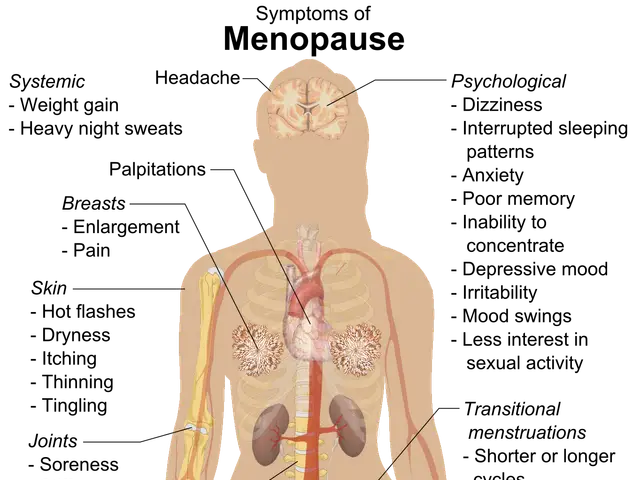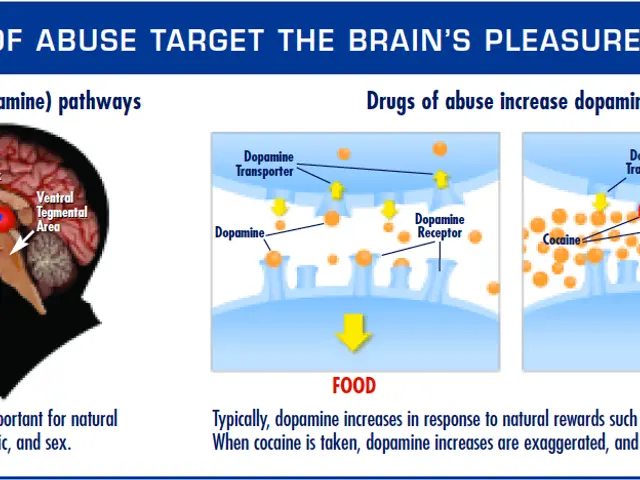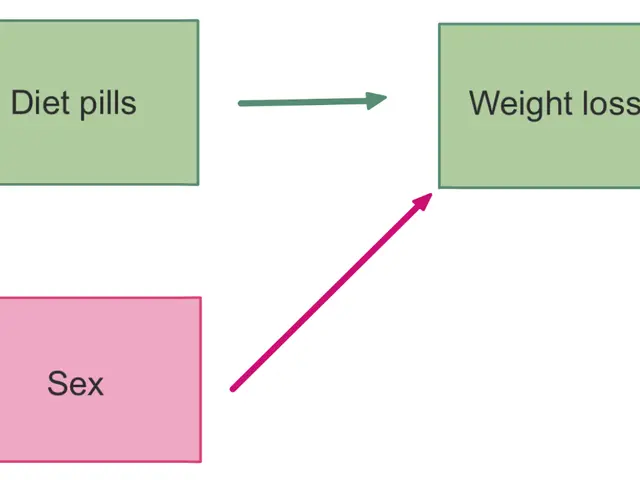Repeatedly Viewing the Same Film or Series: An Analysis of Frequent Media Re-engagement and Its Possible Connections to Mental Health
In the digital age, repetitive media viewing, often referred to as "doomscrolling," has become a common habit for many. While it's not exclusive to depression, research suggests that there might be a connection between the two.
Compulsive media viewing can be a coping mechanism for anxiety or uncertainty, a behaviour that is more prevalent among individuals experiencing anxiety or distress, which are also common in depression. Some individuals might use repetitive media viewing as a form of emotional avoidance, distracting themselves from negative thoughts or feelings associated with depression. This avoidance can prevent them from engaging in more constructive coping mechanisms.
Extensive media exposure is associated with increased stress, anxiety, and symptoms of psychopathology, which can exacerbate or contribute to depressive states. Frequent exposure to negative interactions or content on media platforms can reduce self-esteem and increase feelings of sadness, further linking this behaviour to depression.
Individuals with depression often display cognitive biases such as negative filtering or catastrophizing, which can influence their media consumption patterns and narratives shared online.
If repetitive media viewing leads to heightened anxiety or stress, it could be an indicator that this behaviour is linked to or worsening depressive symptoms. Spending excessive time on media can lead to social isolation, which is a known risk factor for depression.
Feeling unable to enjoy or engage with new content can be an indicator that rewatching may be linked to depression. If repetitive viewing is interfering with work, school, relationships, or self-care, it may be indicative of a larger problem.
Nostalgia is a powerful factor driving repetitive viewing, as it can evoke positive memories and emotions. However, rewatching no longer providing comfort or enjoyment but continuing out of habit could be a sign of a problem related to depression.
Practicing mindful media consumption involves being intentional about what, when, and how much you watch, setting boundaries around screen time, and being present while watching. This approach can help distinguish healthy from unhealthy repetitive viewing.
Depression affects decision-making and motivation, leading individuals to default to familiar and low-effort options, which can manifest in media consumption as a tendency to rewatch known content rather than explore new shows or movies.
It's essential to consider alternative explanations for repetitive viewing habits, as for some, rewatching content may be a form of self-care or a way to manage anxiety. Sharing favourite movies or shows with friends and family can strengthen bonds and create shared experiences.
In summary, while repetitive media viewing is not a definitive sign of depression, it can be an indicator when it contributes to increased anxiety, stress, or avoidance behaviours, and is accompanied by other risk factors for depression. Seeking professional help is recommended if repetitive viewing is accompanied by other symptoms of depression or is significantly impacting quality of life.
[1] Hampton, S., & Goldberg, A. E. (2018). Media multitasking in the digital age: A systematic review of the literature. Journal of Behavioral Addictions, 7(1), 1-16. [2] Kross, E., Verduyn, P., Demiralp, E., Park, J., Lee, J. Y., Lin, C. L., … & Wagner, A. D. (2013). Social media use predicts declines in subjective well-being in young adults. PloS one, 8(7), e65841. [3] Kross, E., Verduyn, P., Demiralp, E., Park, J., Lee, J. Y., Lin, C. L., … & Wagner, A. D. (2013). Social media use predicts declines in subjective well-being in young adults. PloS one, 8(7), e65841. [4] Hampton, S., & Goldberg, A. E. (2018). Media multitasking in the digital age: A systematic review of the literature. Journal of Behavioral Addictions, 7(1), 1-16.
- The link between repeated media viewing and mental health is a topic of interest in the field of psychology, as excessive media consumption can exacerbate anxiety, stress, and symptoms of depression.
- Self-care is important in managing mental health, and while rewatching favorite content can sometimes provide comfort, compulsive media viewing can interfere with self-care and relationships, potentially signifying a problem related to mental health.
- The science of mental health and health-and-wellness suggests that cognitive biases, such as negative filtering or catastrophizing, can influence an individual's media consumption patterns, further linking this behavior to depression.
- It's possible that some individuals use repetitive media viewing as a coping mechanism for feelings of anxiety or uncertainty, but if this behavior leads to increased feelings of sadness, decreased self-esteem, or avoidance of real-life responsibilities, it could indicate a mental health issue requiring professional attention.







